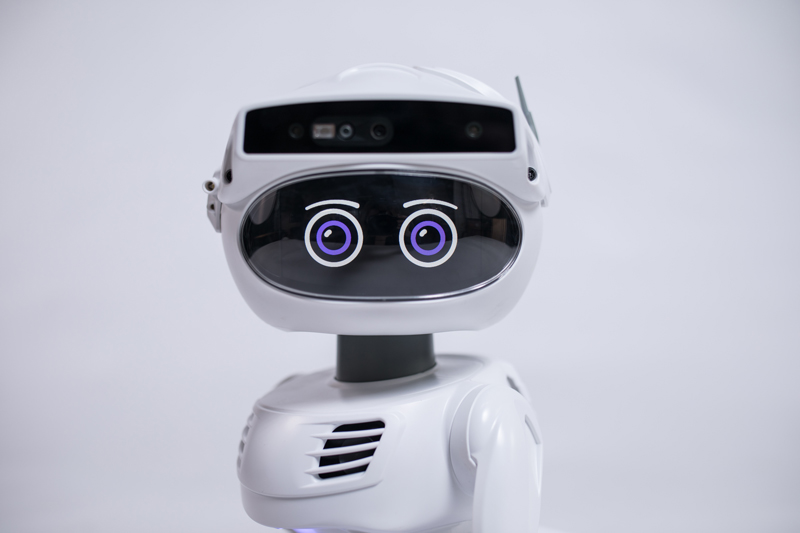 On-Page SEO Optimization – Fix Hidden Errors Killing Rankings!
On-Page SEO Optimization – Fix Hidden Errors Killing Rankings!
AI-Powered Voice Assistants in Smart Cities: How Text-to-Speech (TTS) Market is Shaping Urban Development
Written by Sneha Chakraborty » Updated on: June 17th, 2025 98 views

Introduction:
As the world progresses into the era of smart cities, technology plays an essential role in enhancing the quality of life, improving sustainability, and creating efficient urban environments. Among the innovations powering this transformation, Artificial Intelligence (AI) and Text-to-Speech Market are emerging as key enablers. Voice assistants powered by AI and TTS are becoming integral parts of urban development, providing smarter, more accessible, and interactive services for residents, businesses, and government entities.
This article delves into how AI-powered voice assistants, driven by Text-to-Speech technology, are shaping the evolution of smart cities. From improving accessibility to streamlining services, these intelligent systems are revolutionizing how urban environments function and how citizens engage with them.
What Are Smart Cities?
Before exploring the role of TTS in smart cities, it is essential to understand what a smart city is. A smart city uses digital technology, data, and interconnected devices to optimize urban services and infrastructure. These technologies focus on improving various aspects of urban life, such as transportation, healthcare, security, energy management, and public services.
The idea behind a smart city is to make life more efficient, sustainable, and convenient for residents while reducing environmental impact. Smart cities leverage data collected from sensors, IoT (Internet of Things) devices, and AI algorithms to manage everything from traffic flow to waste collection to public safety. One of the most promising technologies contributing to smart city infrastructure is AI, particularly in the form of voice assistants integrated with Text-to-Speech systems.
The Role of AI-Powered Voice Assistants in Smart Cities
AI-powered voice assistants, such as Amazon Alexa, Google Assistant, and Apple's Siri, have already made their way into households, but their role in smart cities is only beginning to take shape. These intelligent systems use natural language processing (NLP) to understand spoken commands and text-to-speech technologies to respond in human-like voices.
In smart cities, AI-driven voice assistants have the potential to play a transformative role in urban development, providing a seamless, interactive interface for accessing information and services. These systems are helping streamline day-to-day urban activities, making them more efficient and user-friendly.
1. Enhancing Public Services and Citizen Interaction
One of the most significant ways in which AI-powered voice assistants are impacting smart cities is by improving interactions between citizens and public services. City residents can use voice assistants to quickly access city information, request services, and communicate with various departments.
For example, residents can use voice-activated devices to ask about city events, traffic conditions, waste collection schedules, or even public health updates. With TTS technology, the voice assistant can provide spoken, easily understandable responses, helping to bridge any gaps in communication for citizens who may not be tech-savvy or those with disabilities.
By integrating voice assistants into smart city infrastructure, municipalities can ensure more inclusive and efficient public service delivery. Additionally, AI-powered voice assistants can be embedded in digital kiosks, public transport systems, or mobile apps, allowing people to access real-time information about services such as bus schedules, traffic alerts, and emergency warnings—all through voice interaction.
2. Improving Urban Mobility and Transportation
AI and TTS technology are also transforming the way people navigate and interact with transportation systems in smart cities. Intelligent voice assistants are increasingly integrated into public transport systems to enhance the overall travel experience. Whether it's a subway station, bus stop, or train terminal, AI-powered voice assistants can provide passengers with real-time updates, directions, and alerts about transportation options, schedules, and delays.
In addition, TTS technology is helping people with visual impairments navigate urban environments. With the use of AI-driven voice assistants, these individuals can access public transportation information or find their way around the city by receiving spoken guidance. For example, through a combination of GPS, IoT sensors, and TTS-powered voice assistants, individuals with disabilities can receive real-time navigation directions, making urban mobility more inclusive and accessible.
Furthermore, autonomous vehicles (AVs) are a key part of smart city transport infrastructure, and voice assistants powered by TTS are becoming an essential element of AV communication. Passengers of autonomous cars can communicate directly with the vehicle using voice commands to set destinations, request services, or receive travel updates.
3. Supporting Healthcare Systems and Services
AI-powered voice assistants integrated with TTS are playing a crucial role in improving healthcare services in smart cities. From facilitating doctor-patient communication to supporting healthcare administration, voice assistants are enhancing the healthcare experience. In hospitals and clinics, voice-controlled systems allow healthcare professionals to access patient records, make inquiries, and interact with various systems using their voices, which reduces the need for manual entry and improves operational efficiency.
For patients, TTS technology can be used to deliver medical information, appointment reminders, and prescription instructions in a clear and accessible manner. For individuals who have difficulty reading printed materials or have visual impairments, hearing spoken information through a TTS-enabled assistant is a game-changer, allowing them to take better care of their health and stay informed about their medical conditions.
In addition, AI-driven voice assistants in telemedicine and virtual consultations offer patients the ability to communicate their symptoms or ask questions in real-time, enhancing remote healthcare accessibility and improving the overall patient experience.
4. Environmental Management and Sustainability
Smart cities aim to reduce environmental impact, and AI-driven voice assistants are playing a significant role in achieving sustainability goals. These systems are integrated with smart grids, waste management, and energy systems to help citizens make more environmentally conscious decisions.
For example, citizens can use voice assistants to monitor their energy consumption, receive alerts about excessive usage, and be advised on how to reduce their carbon footprint. Similarly, in waste management systems, AI-powered voice assistants provide reminders to residents about garbage collection days, recycling instructions, and environmental tips, ensuring that the city’s resources are managed in the most sustainable way possible.
With TTS, these sustainability-focused messages are delivered in a user-friendly, natural-sounding manner, making it easier for residents to adopt eco-friendly habits and participate in the city's sustainability efforts.
5. Personalized Experiences for Residents and Visitors
One of the key benefits of AI-powered voice assistants in smart cities is the ability to offer personalized, on-demand information. Through voice interactions, citizens and visitors can receive tailored responses based on their preferences, habits, or specific needs. Whether it's offering local restaurant recommendations, providing weather updates, or sharing news about upcoming community events, voice assistants use AI to create an individualized experience for each person.
TTS systems ensure that these interactions are delivered in a clear, natural-sounding voice, making communication more engaging and accessible. As cities continue to evolve and adopt more smart technologies, AI-powered voice assistants will likely become an integral part of daily life, providing real-time, context-aware information and services.
The Future of AI and TTS in Smart Cities
The potential for AI-powered voice assistants and TTS technology to shape the future of smart cities is vast. As these technologies continue to evolve, their capabilities will expand, making cities smarter, more efficient, and more inclusive. Here are a few ways in which AI and TTS will likely continue to influence urban development:
• Multilingual Capabilities: Smart cities are home to diverse populations. AI-powered voice assistants can be programmed to communicate in multiple languages, breaking down language barriers and promoting inclusivity. TTS technology can produce speech in different languages, allowing more residents to interact with the city’s services and infrastructure.
• Data-Driven Decision Making: Voice assistants can gather valuable data about user preferences, behaviors, and needs, providing city administrators with insights into how services are being used and where improvements are needed. AI-powered analytics can further refine urban planning decisions.
• Increased Automation: As AI continues to improve, we may see more autonomous systems in smart cities, from self-driving cars to automated waste collection. TTS systems will play a central role in facilitating communication between people and these automated systems.
Conclusion
AI-powered voice assistants driven by Text-to-Speech technology are at the forefront of smart city development. By enhancing citizen engagement, improving urban mobility, supporting healthcare, promoting sustainability, and offering personalized experiences, TTS-powered systems are shaping the future of urban environments. As smart cities continue to grow and evolve, these technologies will play an even more significant role in making cities more accessible, efficient, and sustainable, paving the way for a smarter, more connected world.
Note: IndiBlogHub features both user-submitted and editorial content. We do not verify third-party contributions. Read our Disclaimer and Privacy Policyfor details.
Copyright © 2019-2025 IndiBlogHub.com. All rights reserved. Hosted on DigitalOcean for fast, reliable performance.














